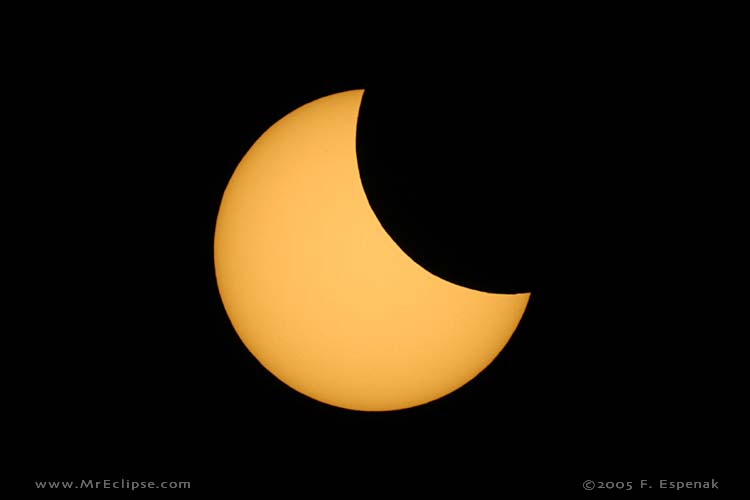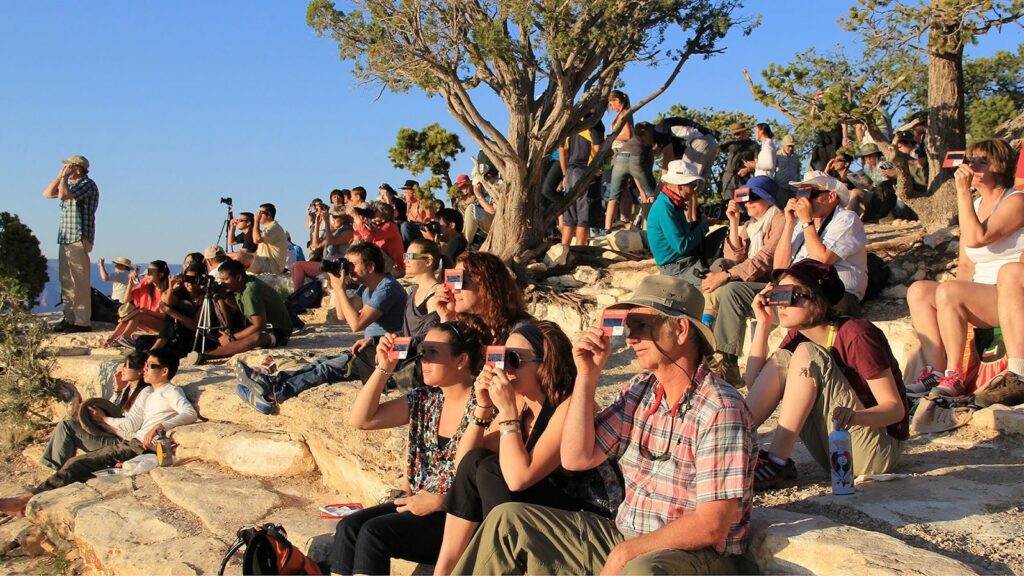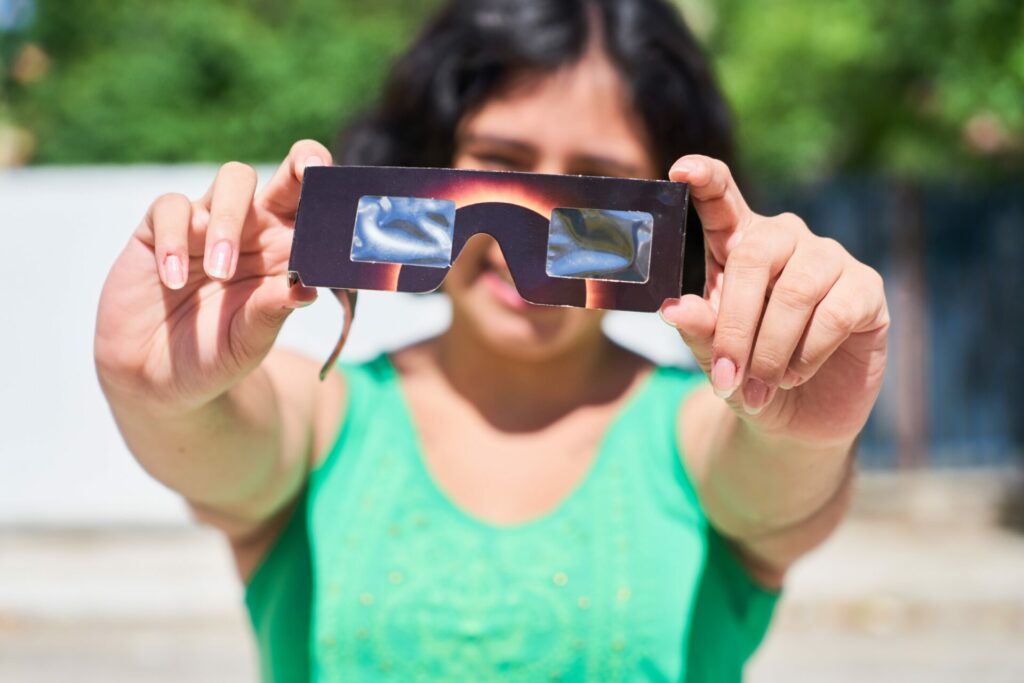Our resident eclipse expert has one last bit of advice for all of you out there who are sad to see our “Year of Eclipses” come to an end. Whether you’ve been seeking advice for running eclipse events or seeking advice for viewing the eclipses yourself, Ken has offered us great knowledge since last August so we could all be prepared. And I will be the first to give a hearty “THANK YOU!”
We couldn’t have done it with you, Ken. We’ll be waiting here for your great advice again in 2045!

By Kenneth Brandt
Eclipse day: Noon Fluffy gray clouds dominate the sky, but they seemed to be thinning! I think eclipse chasers must be the brightest of optimists! It’s funny how the best laid plans of astronomers can go aft agley: total clouds only for me. However, an eclipse is about a lot more than the Moon blocking the Sun. And the good news is that I know what these things oughta look like, so I could spend my time observing all the ways nature shifts from day to night, from winds picking up, to the eerie darkness which overtook us.

So here we are, just a few days after two Solar eclipse events happening within six months! In Lumberton, Robeson Community College was visited by over 200 eager members of the public, hoping for a chance to catch a glimpse of the eclipse Monday. Dave Gavasci’s audience seemed to enjoy themselves, and I think he generated some serious good will in the community. Likewise, I teach astronomy for USC Beaufort, and one of my students ran an eclipse outreach “pop up” event during the eclipse. He reported giving out about 150 of the eclipse glasses I shipped him, and that his participants were safe throughout. I am proud of the outreach I was able to prompt into being, both in North and South Carolina!

My post eclipse advice to event holders: pivot those eclipse event volunteers into other roles at your institution. You made some headway having them volunteer in the first place. They are curious about the “science-y” things that you’re doing, continue to whet the appetite!
If you’re an eclipse viewer and you’re sad that these amazing events are over a for a while, branch out your interests in astronomy! Visit planetariums, ask around about other astronomical events that might be of interest (lunar eclipses, meteor showers, and star parties abound!). Explore your interest in this great field of science and see where it leads you.

Things I will miss: All the attention given to science during this time of eclipses. I know that will now subside a bit, as the next solar eclipse we’ll see locally is in 2045, (I hope to be blogging about that one too!). But as I mentioned above, there are so many other great astronomical opportunities! And I invite the public to explore those as well. We’re here and we want to share.

Finally, there are organizations that want your old glasses! Don’t trash those Eclipse glasses, pass them on to Latin American children to enjoy the October 2024 Eclipse. Ship before August 1st to:
Eclipse Glasses USA, LLC
PO Box 50571
Provo, UT 84605
Also, Astronomers Without Borders will redistribute recycled glasses. “Consider participating in our eclipse glasses recycling program by becoming a collection and vetting hub. AWB is working on providing vetting, packing, storing and shipping instructions.” For more information, go to: https://astronomerswithoutborders.org/programs/solar-glasses-distribution
Next for me, (1) prepare for a great star party friday night, and then (2) Italy (!!) the next day.
Come back to visit those blog posts over the next few weeks and learn about science ed in Italy.
********
Ken Brandt directs the Robeson Planetarium and Science Center for the Public Schools of Robeson County. He is a volunteer in NASA’s Solar System Ambassador Program. He is also a member of the 3rd cohort of NC Space Grant Ambassadors, and an Ambassador for the Mars Society. Ken is also Co-Chair of the International Planetarium Society’s Education Committee.